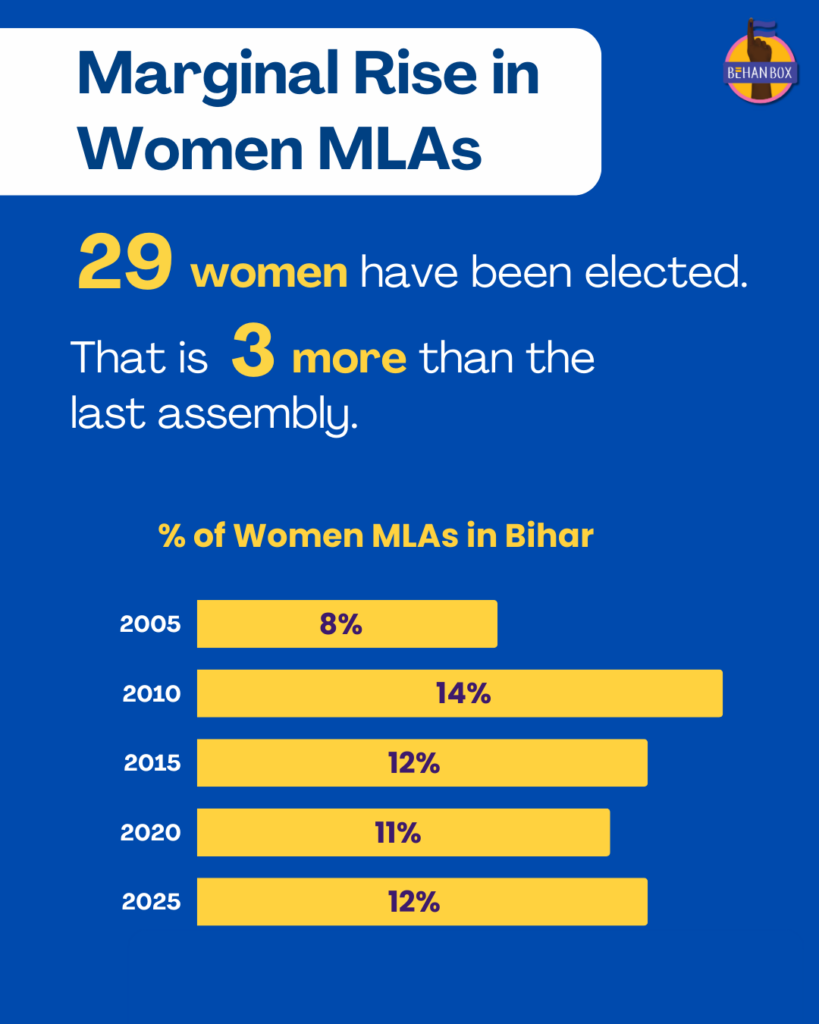[Readmelater]
BehanVox: A Marginal Rise In Bihar’s Women MLAs
This week in BehanVox: the strange world of technocapitalism, our Laadli wins, and more
Support BehanBox
We believe everyone deserves equal access to accurate news. Support from our readers enables us to keep our journalism open and free for everyone, all over the world.






